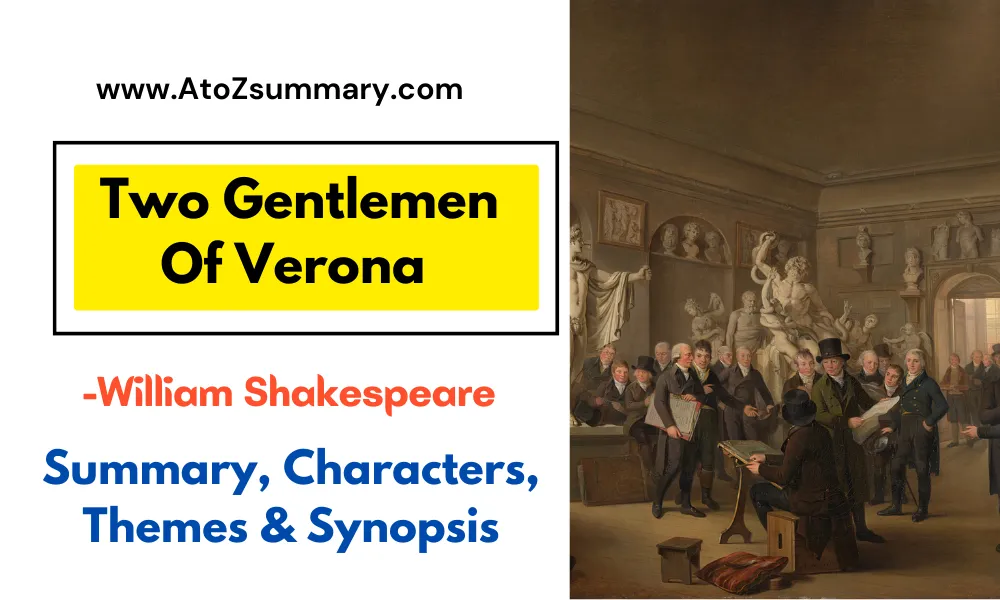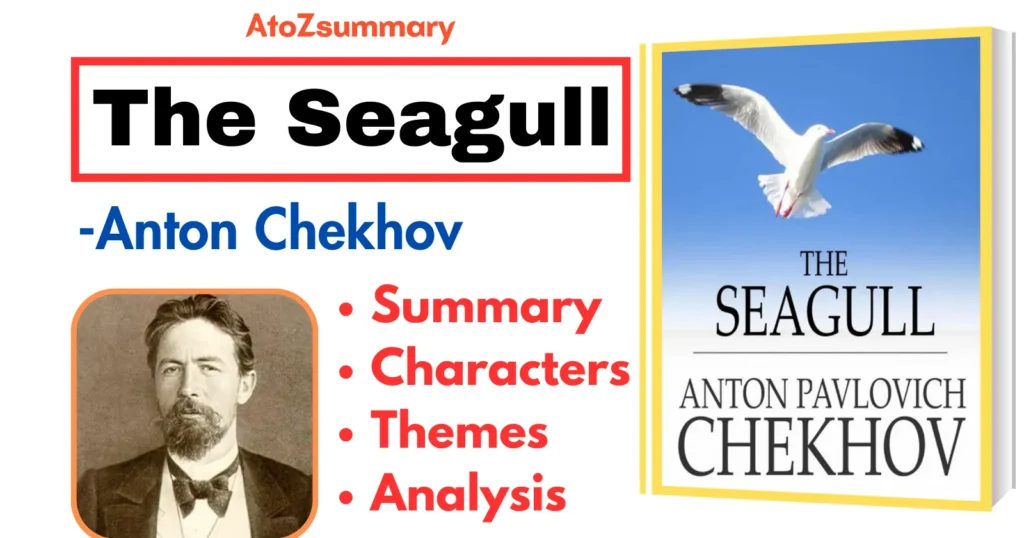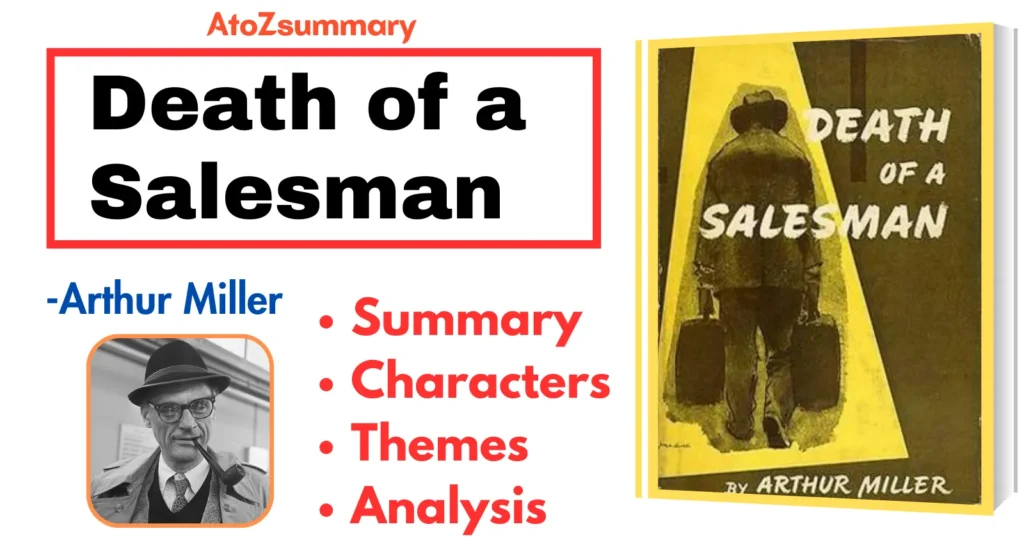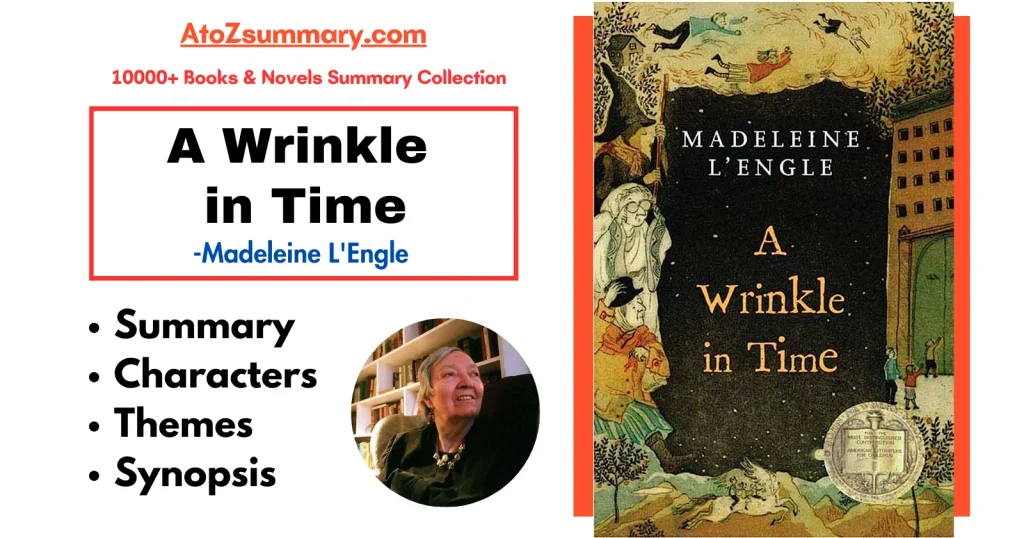| Title | Two Gentlemen of Verona |
|---|---|
| Playwright | William Shakespeare |
| Year of Composition | 1589-1593 |
| Genre | Comedy |
| Setting | Verona, Milan |
| Main Characters | Proteus,Valentine,Julia,Silvia |
| Famous Quotes | -“They do not love that do not show their love” -“Thou, Julia, thou hast metamorphosed me” – “Love is blind, and lovers cannot see.” |
| Notable Scenes | – The meeting of Proteus and Julia in the garden – The discovery of Proteus’ treachery – The attempted rape of Silvia by Proteus |
Two Gentlemen Of Verona Characters
1. Proteus – Proteus is one of the titular gentlemen of Verona. He is a young and impulsive man who initially appears to be honorable and loyal. However, his love for Julia leads him to betray his best friend Valentine. Proteus later realizes his mistake and seeks forgiveness.
2. Valentine – Valentine is Verona’s other gentleman. He is devoted to his buddies and is a bold and loyal buddy. Valentine falls in love with Silvia, the daughter of the Duke of Milan, and himself up in a complicated love triangle with Proteus.
3. Julia – Julia is Proteus’ beloved. She is a strong-willed and intelligent young woman who dresses up as a pageboy named Sebastian to follow Proteus when he leaves Verona. Julia’s disguise allows her to witness Proteus’ unfaithfulness firsthand.
4. Silvia – Silvia is the object of Valentine and Proteus’ affections. She is the beautiful and virtuous daughter of the Duke of Milan. Silvia resists the advances of Proteus, remaining true to Valentine despite her father’s attempts to force her into a loveless marriage.
5. Duke of Milan – The Duke of Milan is Silvia’s father and a powerful figure in the play. He desires to control Silvia’s romantic life and wants her to marry the wealthy Thurio, despite her feelings for Valentine. The Duke is not a sympathetic character and often acts in a tyrannical manner.
6. Lucetta – Lucetta is Julia’s maid and confidante. She is a witty and loyal companion who supports Julia in her pursuit of Proteus. Lucetta’s advice and assistance are crucial to the development of the plot.
7. Launce – Launce is a clownish and humorous servant to Proteus. He is known for his comical monologues and his loyal relationship with his dog, Crab. Launce provides comic relief throughout the play.
8. Speed – Speed is a quick-witted servant to Valentine. He is known for his fast and witty banter, often engaging in wordplay with his master. Speed acts as a loyal friend and confidante to Valentine.
9. Antonio – Antonio is Proteus’ father and a respected gentleman of Verona. He is deeply concerned about his son’s behavior and tries to guide him in the right direction.
Two Gentlemen Of Verona Themes
1. Friendship – One of the central themes of the play is friendship. It explores the bond between Proteus and Valentine, two close friends from Verona. The play examines the challenges that friendship can face when tested by jealousy, betrayal, and conflicting romantic interests.
2. Love and Infatuation – “Two Gentlemen of Verona” delves into the theme of love and infatuation, highlighting the irrational and impulsive nature of romantic attraction. The characters experience intense emotions and grapple with the conflicting desires of their hearts, often leading to questionable actions and complicated relationships.
3. Loyalty and Betrayal – The play explores the theme of loyalty and betrayal, examining how characters navigate conflicting loyalties in their relationships. The friendship between Proteus and Valentine is tested when Proteus betrays Valentine by pursuing his love interest, Silvia, despite his own prior commitment.
4. Gender Roles and Disguise – Shakespeare explores the theme of gender roles and disguise in the play. Julia, one of the female characters, disguises herself as a pageboy named Sebastian in order to follow Proteus to Milan. This theme raises questions about identity, societal expectations, and the roles individuals are assigned based on their gender.
5. Forgiveness and Reconciliation – “Two Gentlemen of Verona” also explores the theme of forgiveness and reconciliation. Despite the conflicts and betrayals that occur throughout the play, the characters are given opportunities to seek forgiveness and reconcile with each other. The play emphasizes the importance of forgiveness in restoring damaged relationships.
6. Self-discovery and Growth – The characters in the play go through journeys of self-discovery and personal growth. They learn from their mistakes, reflect on their actions and evolve as individuals. The theme of self-discovery highlights the transformative power of experiences and the lessons learned from the complexities of love and friendship.
7. Foolishness and Wit – “Two Gentlemen of Verona” incorporates elements of comedy and humor, employing witty dialogue and humorous situations. The theme of foolishness and wit serves to entertain the audience and provide comic relief while also highlighting the folly and irrationality often associated with love.
Two Gentlemen Of Verona Synopsis
Shakespeare’s humorous play “The Two Gentlemen of Verona” tackles the concepts of friendship, love, loyalty and treachery.
Valentine and Proteus, two close friends who journey from Verona to Milan in pursuit of romance and adventure, are the central characters of the novel.
Valentine has plans to marry Silvia, the Duke of Milan’s daughter, after falling in love with her.
However, Proteus, driven by his own desires, also falls in love with Silvia and betrays his friend by revealing his intentions to the Duke.
Proteus’s actions lead to a series of misunderstandings, conflicts, and deceptions.
Meanwhile, Julia, Proteus’s beloved from Verona, disguises herself as a pageboy and arrives in Milan to find him. She witnesses his infidelity but remains devoted to him.
In the end, true love and friendship triumph over betrayal and selfishness. Proteus realizes his mistakes and repents, allowing Valentine and Silvia to be together.
The play concludes with a message of forgiveness, redemption, and the power of love to overcome obstacles.
Two Gentlemen Of Verona Summary
Valentine & Proteus bid a sorrowful farewell on a Verona street. Valentine goes off to better himself, seeing the world, whilst Proteus remains at home in Verona, bound by his love for Julia. Speed, Valentine’s servant, enters after Valentine leaves. Proteus asks Speed if he sent a letter to Julia, to which Speed responds in the affirmative. In the meantime, Julia asks her maid, Lucetta, who she should fall in love with & Lucetta suggests Proteus. Lucetta says that she has a letter from Proteus for Julia. Julia shreds up the letter after much wrangling, only to regret her actions an instant later.
Antonio plans to send his son, Proteus, to the Duke’s court in Milan, which neither Proteus nor Julia are pleased with. They swap rings and vow to continue loving each other. Meanwhile, Valentine has developed feelings for the Duke’s fiery daughter, Silvia. When Proteus comes to court, he, too, falls in love with Silvia & pledges to do whatever it takes to seduce her away from Valentine. When Valentine admits that he and Silvia want to elope, Proteus informs the Duke of their plans, winning favour and banishing Valentine from court. Julia has come up with a scheme to disguise herself as a male in order to travel to Milan and be reunited with Proteus. When she arrives at court, she sees Proteus & Thurio wooing Silvia.
While travelling to Mantua, the exiled Valentine is caught by a band of criminals. The outlaws, who are all exiled gentlemen, demand Valentine become their king. Valentine agrees since they threaten to murder him if he refuses. Silvia & Julia, dressed as the page Sebastian, cross paths when Julia delivers the ring Proteus had given her to Silvia on Proteus’ behalf. Julia refuses to share her true identity. Silvia seeks the assistance of her friend Sir Eglamour in escaping her father’s harsh will (he wishes for her to marry Thurio) as well as discovering Valentine. However, as she and Eglamour go through the forest, they are ambushed by a band of outlaws. Eglamour flees, leaving Silvia to face the outlaws on her alone. By this point, the Duke, Proteus, & Thurio, accompanied by Sebastian/Julia, have organised a search party for Silvia.
Silvia is wrested from the outlaws by Proteus. Valentine observes the interaction from a distance. Proteus asks that Silvia show him some sort of gratitude for releasing her, but she refuses. He attempts to rape her in retaliation for her resistance, but Valentine intervenes and prevents him. Proteus apologises instantly, and Valentine presents him Silvia as a mark of their friendship. Sebastian faints at this point, revealing his actual identity. Proteus determines that he loves Julia more than Silvia and chooses her instead. The Duke realises Thurio is a thug & tells Valentine that Valentine is considerably more aristocratic and may marry Silvia. Valentine requests clemency for the outlaws and proposes that his wedding to Silvia and Proteus’ wedding to Julia be held on the same day.
Two Gentlemen Of Verona FAQs
Is Two Gentlemen of Verona a tragedy?
No, Two Gentlemen of Verona is not a tragedy. It is classified as a comedy and is one of William Shakespeare’s early plays.
What is the moral of Two Gentlemen of Verona?
The moral of “Two Gentlemen of Verona” is that true friendship and loyalty should triumph over romantic pursuits and betrayals.
Is Two Gentlemen of Verona a romantic comedy?
Yes, “Two Gentlemen of Verona” is a romantic comedy written by William Shakespeare, featuring themes of love, friendship and comedic elements.
What is the theme of the story Two Gentlemen of Verona?
The theme of “Two Gentlemen of Verona” revolves around friendship, loyalty, love and the complexities of romantic relationships.
Who is the main character in Two Gentlemen of Verona?
Proteus is the main character in “Two Gentlemen of Verona.”
Who is the villain in Two Gentlemen of Verona?
Proteus is the villain in “Two Gentlemen of Verona.”
Why is the title Two Gentlemen of Verona justified?
The title “Two Gentlemen of Verona” is justified because it refers to the two main male characters from Verona who are central to the play’s plot.
What is the conflict in Two Gentlemen of Verona?
The conflict in “Two Gentlemen of Verona” revolves around the love triangle between Proteus, Valentine and Sylvia, testing friendship and loyalty.
Who is the true gentleman of Verona?
The true gentleman of Verona is considered to be Valentine, one of the main characters in William Shakespeare’s play “The Two Gentlemen of Verona.”
How does Two Gentlemen of Verona end?
The Two Gentlemen of Verona ends with the characters reconciling, and Proteus and Valentine both choosing their respective love interests, Julia and Silvia, as their romantic partners.
About the Author-William Shakespeare
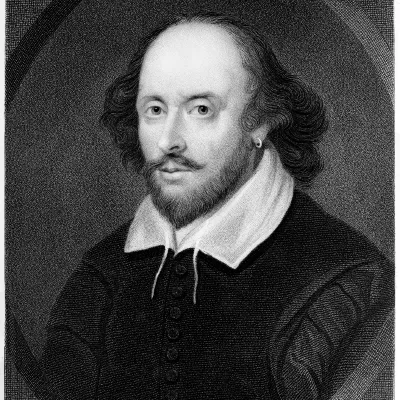
| Detail | Information |
|---|---|
| Full Name | William Shakespeare |
| Birth Date | April 26, 1564 |
| Death Date | April 23, 1616 |
| Nationality | English |
| Occupation | Playwright, poet, actor |
| Known For | Writing numerous plays, sonnets, and poems |
| Famous Works | Romeo and Juliet, Hamlet, Macbeth, Othello, King Lear |
| Literary Contributions | Shakespearean Tragedy, Comedies, Histories, Sonnets |
| Language | Primarily wrote in Early Modern English |
| Influences | Roman and Greek classical literature, Italian Renaissance |
| Notable Quote | “All the world’s a stage, and all the men and women merely players.” |

